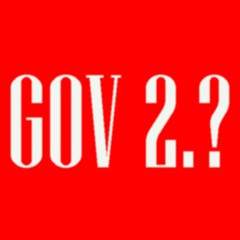November 30, 2010
We Need Governmental Transparency, Now More Than Ever
 “Openness will strengthen our democracy and promote efficiency and effectiveness in Government.” -President Obama, 1/21/09
“Openness will strengthen our democracy and promote efficiency and effectiveness in Government.” -President Obama, 1/21/09
After reading a past Charleston Gazette (@wvgazette) article by Kate Long, it is extremely evident that this openness is exactly what West Virginia government is lacking. House of Delegates (@wvhouse) member Nancy Peoples Guthrie (@nguthrie4me), who is the chairwoman of the House stimulus committee, said, “There’s no reason for this to be cloaked in secrecy… it’s gotten beyond the point where ‘trust us’ is a sufficient answer.” (See full article here: http://www.wvgazette.com/News/201008100756)
As an advocate of social media being a connection vehicle for politicians and their constituents, I’m alarmed I just might need to take my stilettos two steps back before taking another step forward. It appears elected officials from different branches of government need to be more social and communicative with each other. Long’s article clearly points out the lack of information sharing from the executive branch to the legislative branch.
 Formerly HM Government’s technology outreach Czar, Neville-Kingdom is currently data sharing Czar. He was also a former Ideal Government contributor, becoming in the process the first serving Permanent Secretary to blog in an open forum, before taking to Twitter in July 2009. He now has close to 1000 followers, including many women of a certain age with unusual names and a taste for lingerie.
Formerly HM Government’s technology outreach Czar, Neville-Kingdom is currently data sharing Czar. He was also a former Ideal Government contributor, becoming in the process the first serving Permanent Secretary to blog in an open forum, before taking to Twitter in July 2009. He now has close to 1000 followers, including many women of a certain age with unusual names and a taste for lingerie.
 This week I took some time off and headed out to Victoria British Columbia so I could be a part of
This week I took some time off and headed out to Victoria British Columbia so I could be a part of  A new political movement called No Labels is preparing for launch in the United States.
A new political movement called No Labels is preparing for launch in the United States.
 It is emblematic of the times that nascent Gov 2.0 is without adequate descriptors readily accepted and simply described. This has less to do with the availability of labels than the fact that Gov 2.0 is a ship without a rudder— it still lacks a unifying theme and clearly articulated purpose behind the Gov 2.0 transformation. Gov 2.0 still means many things to many people—often different.
It is emblematic of the times that nascent Gov 2.0 is without adequate descriptors readily accepted and simply described. This has less to do with the availability of labels than the fact that Gov 2.0 is a ship without a rudder— it still lacks a unifying theme and clearly articulated purpose behind the Gov 2.0 transformation. Gov 2.0 still means many things to many people—often different.